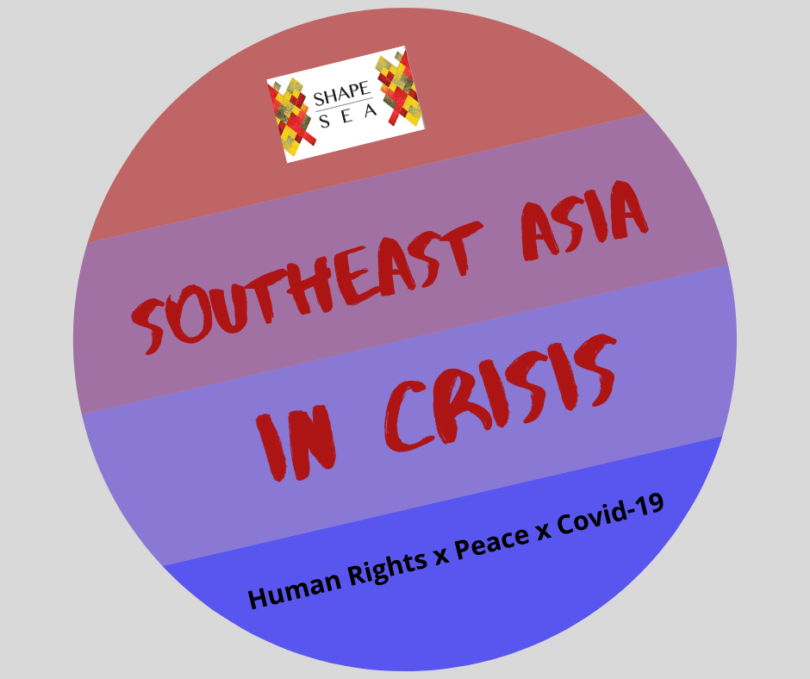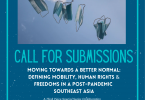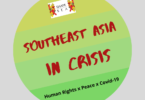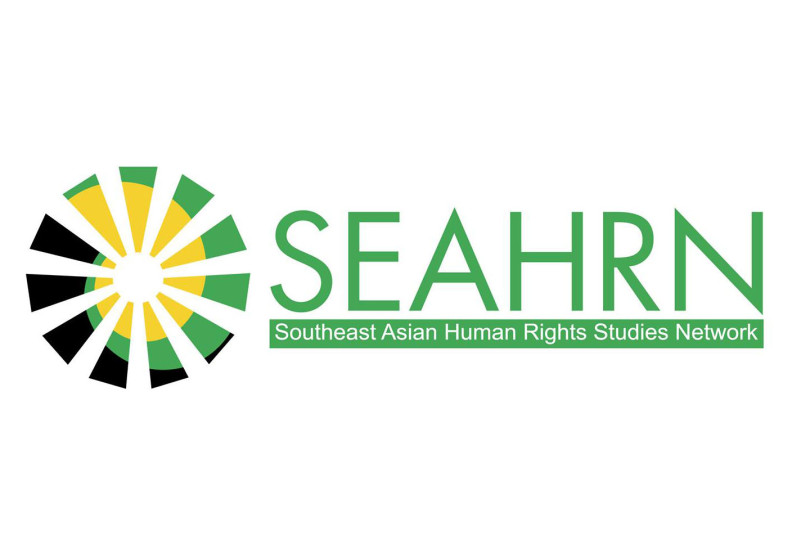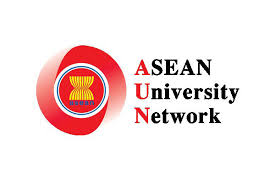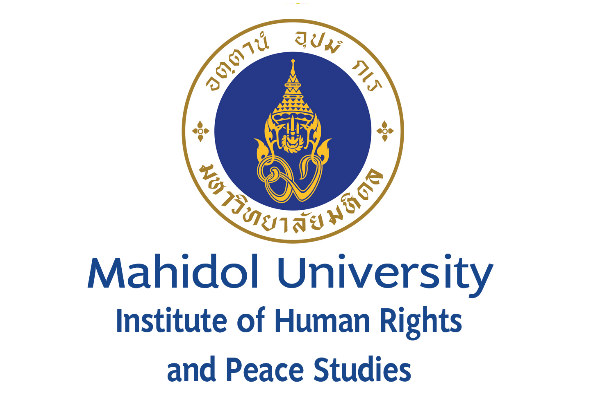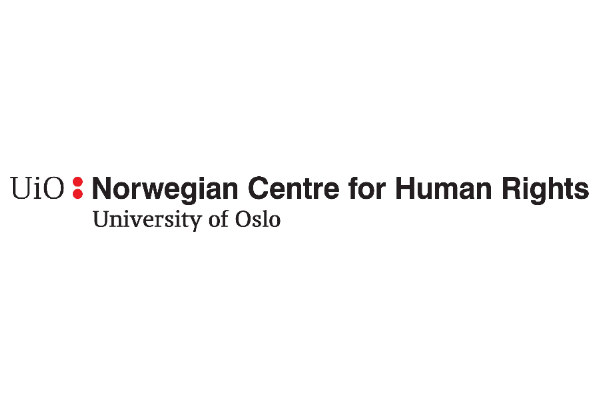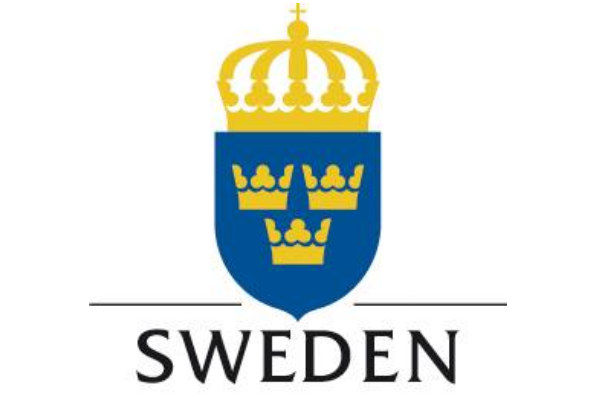Bhanubhatra Jittiang
Department of International Relations,
Faculty of Political Science,
Chulalongkorn University
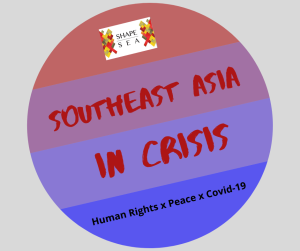 Since 1 April 2020, I have been in contact with a number of urban refugees to check on their situation in the time of Covid-19. Each narrative I heard was distressful. This health crisis has made them more vulnerable, jeopardizing their livelihood and health, as well as challenging any resettlement prospects in the near future. In this article, I share the story of Abdullah, a Palestinian refugee, to reflect upon the struggles of around 5,000 urban refugees in Bangkok (Quinley, 2019) amid the ongoing pandemic.
Since 1 April 2020, I have been in contact with a number of urban refugees to check on their situation in the time of Covid-19. Each narrative I heard was distressful. This health crisis has made them more vulnerable, jeopardizing their livelihood and health, as well as challenging any resettlement prospects in the near future. In this article, I share the story of Abdullah, a Palestinian refugee, to reflect upon the struggles of around 5,000 urban refugees in Bangkok (Quinley, 2019) amid the ongoing pandemic.
Abdullah moved to Thailand with his family since 2014, hoping to get quick resettlement in a third country. Their hope seems waned upon setting their feet in Thailand. They have soon learned that the resettlement quota allocated for refugees in the country is limited, while living and blending into the Thai community is challenging, especially given their distinct physical appearances from the locals. Furthermore, their “refugee status” does not ensure access to adequate protection because the Thai government has never officially recognized refugees. Thailand is neither a party to the 1951 Convention Related to the Status of Refugees nor to its 1967 Protocol and would resort to the enforcement of the national immigration laws (Palmgren, 2013.)
To reduce exposure to Thai authorities, “staying home” has become a norm for Abdullah’s family. Still, they need to generate income to survive. In order to do so, Abdullah and his sister, Sabiha work as a tour guide for Arab tourists and as an interpreter for an NGO, respectively. When going out to work, both siblings are always cautious, trying not to get caught by the police. Getting arrested means no one would take care of the family. In some instances, they would bribe officers for freedom. These financial burdens, apart from other challenges living in a foreign land, are taking a great toll on the family.
When the pandemic hit Thailand, the siblings immediately scrambled for opportunities to survive. In his written message to me, Abdullah said, “we have not yet paid the rent and amenities for our house” (Personal Communication, 9 April 2020.) Such situation is shared among low-income families and migrant workers in Thailand, but the condition of urban refugees is particularly severe. They have no access to funding from the Thai government due to their lack of recognized status and have no home to return for short-term support. Abdullah’s family is now surviving on lent money and donations.
In terms of healthcare, refugees have already been facing issues when it comes to access to services prior to Covid-19. Only a few refugee families in Thailand could afford and enjoy medical services and medication (Pittaway, 2015.) The fear of authorities also prevents most urban refugees from seeking appropriate care from the Thai state. Only a handful with severe cases are referred to public hospitals. Now that we are in a great health crisis, services are even much costlier and more limited. Moreover, refugees could not comply with physical distancing regulations as families live in small spaces, wherein some cases are shared with others. They are without a doubt at high risk of getting infected.
The future of urban refugees has become more uncertain with the pandemic stretching in the coming months. Since most states around the globe have been prioritizing their citizens, many potential third countries—especially in Europe—will likely reduce the number of intaking refugees or extend their temporary suspension on resettlement programs (See, e.g., Shenoy, 2020.) Resettlement opportunities for those awaiting would be affected and greatly reduced. Therefore, protracted situation will continue, accompanied by increased levels of stress and anxiety, as well as, challenges to survive.
The pandemic, nevertheless, provides an excellent opportunity for the Thai government to fulfill commitments to protect refugee rights made by General Prayuth Chan-o-cha at the 2016 Leaders’ Summit on Refugees (Ministry of Foreign Affairs of Thailand, 2016.) Thailand should accelerate the implementation of the national screening mechanism approved at the end of last year—which includes healthcare provision for the screened-in (See, Royal Thai Government Gazette, 2019.) Refugees could then access essential health services in cases of infections. Furthermore, the Thai government must realize that Covid-19 knows no ethnicity and nationality. People can easily transmit the deadly virus to others. Protecting urban refugees, thus, means protecting Thai citizens. For these reasons, Thailand must provide protection and assistance to urban refugees now!
Notes:
Pseudonyms are used to protect anonymity of refugees.
References:
Ministry of Foreign Affairs of Thailand. 2016. “Press Releases: Thailand Pledged Additional
Assistance to Alleviate the Plights of Displaced Persons.” Accessed on April 21, 2020 (http://www.mfa.go.th/main/en/media-center/14/70440-Thailand-pledged-additional-assistance-to-alleviat.html)
Palmgren, Pei A. 2013. “Irregular Networks: Bangkok Refugees in the City and Region.”
Journal of Refugee Studies 27(1): 21-41.
Pittaway, Eileen. 2015. “Life in Limbo: Unregistered Urban Refugees on the Thai-Burma
Border.” Pp.164-186 in Urban Refugees: Challenges in Protection, Services and Policy,
edited by K. Koizumi and G. Hoffstaedter. London: Routledge.
Quinley, Caleb. 2019. “Life in the Shadows: Thailand’s Urban Refugees.” The New
Humanitarian. Accessed on April 16, 2020 (https://www.thenewhumanitarian.org/news/2019/09/11/Thailand-refugee-policies-asylum-seekers-immigration-detention)
Royal Thai Government Gazette. 2019. “Regulations of the Office of the Prime
Minister on the Screening of Aliens Who Enter into the Kingdom and Are Unable to Return to the Country of Origin B.E. 2562,” Book 136, Section Special 314 G, December 25.
[ราชกิจจานุเบกษา. 2562. “ระเบียบสำนักนายกรัฐมนตรีว่าด้วยการคัดกรองคนต่างด้าวที่เข้ามาในราชอาณาจักรและไม่สามารถเดินทางกลับประเทศอันเป็นภูมิลำเนาได้ พ.ศ. 2562,” เล่ม 136 ตอนพิเศษ 314 ง, 25 ธันวาคม.]
Shenoy, Rupa. 2020. “Families in limbo as refugee resettlement is suspended due to COVID-
19.” PRI. Accessed on April 16, 2020 (https://www.pri.org/stories/2020-03-30/families-limbo-refugee-resettlement-suspended-due-covid-19)


